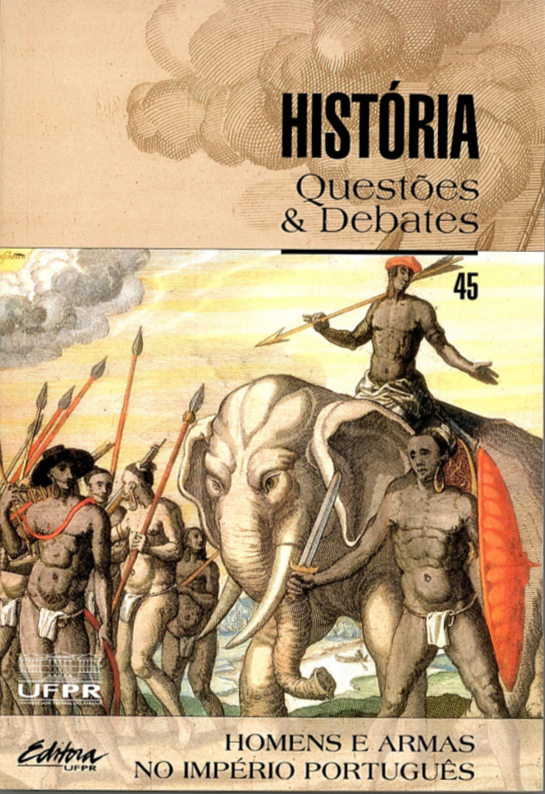REDE DE MERCÊS E CARREIRA: O “DESTERRO D’ANGOLA” DE UM MILITAR LUSO-BRASILEIRO (1782-1789)
DOI:
https://doi.org/10.5380/his.v45i0.7946Palabras clave:
Império Colonial Português, militares, mercês, Portuguese Colonial Empire, military, merces, giftResumen
O aparecimento de uma camada de militares letrados de baixa patente nas colônias portuguesas é um fenômeno típico da segunda metade do século XVIII. A inserção desses letrados na carreira das armas era complexa, pois a corporação era tanto o lugar de criminosos, condenados ao exílio, como o espaço tradicional da nobreza. Esses militares circulavam pelas diversas colônias e, portanto, compartilhavam com a elite governante, proveniente da nobreza de Portugal, uma noção ampliada da diversidade espacial e social do Império. A meritocracia
funcionava até certo patamar. Em outro nível, a corporação reproduzia a rigidez da estrutura social do Antigo Regime. Para conseguir que os seus méritos fossem reconhecidos e recompensados, aqueles que não provinham de famílias ricas ou ilustres precisavam dominar as redes parentais da elite governante, estabelecendo algum tipo de vínculo com ela. Formavam-se, desta forma, redes clientelares, que podem ser
pensadas como cadeias de mercês, ou de dádivas.
Descargas
Cómo citar
Número
Sección
Licencia
Direitos Autorais para artigos publicados nesta revista são do autor, com direitos de primeira publicação para a Revista. Em virtude da aparecerem nesta revista de acesso público, os artigos são de uso gratuito, com atribuições próprias, em aplicações educacionais e não-comerciais.
Os textos da revista estão licenciados com uma Licença 
Creative Commons Atribuição-NãoComercial-CompartilhaIgual 4.0 Internacional.



